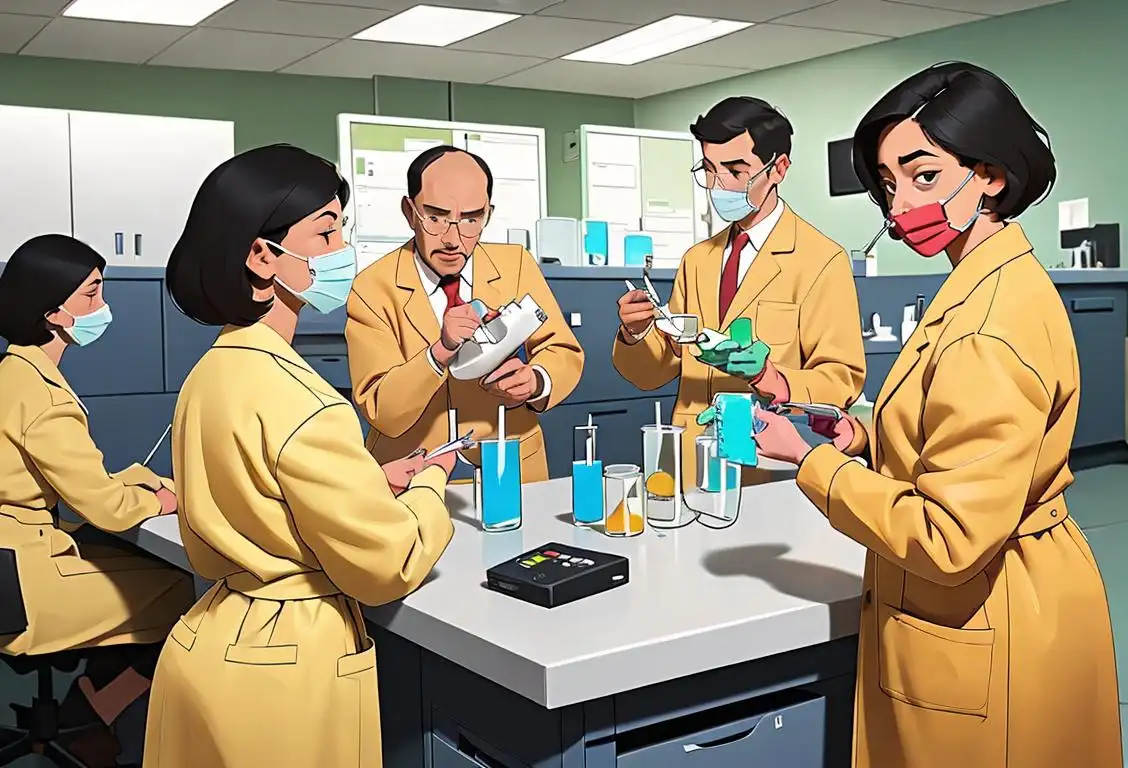National Masturbation Day

Today, let's talk about a most unusual national day celebrated in the most discreet of ways, National Self-Care Day, also known in some corners of the internet as National Masturbation Day. Keep in mind this day is all about self-love, health, and breaking down stigmas, instead of blushing cheeks and awkward mumbling.
When is Masturbation Day?
It's national masturbation day on the 7th May.
History of National Self-Care Day
The exact origins of National Self-Care Day, celebrated annually on May 7, are as self-contained as the act itself. But what we do know is that this day made its first major online appearance in 2016, and caught the imagination of internet users worldwide, logging a whopping 4692 mentions. It seems many individuals and health advocates got behind this day on the premise that self-love is an important aspect of personal wellbeing and mental health.
Moving Beyond the Blushes
One of the most intriguing aspects of National Self-Care Day is seeing the raised eyebrows it prompts, followed by giggles, and then, eventually, earnest discussion. It's about moving beyond the blushes and addressing the fact that self-love is a normal part of human nature. This day aims to debunk the countless myths associated with this still-taboo topic and embark on a journey of candid conversation in a clean, wholesome manner.
The Role of Social Media
The peak of National Self-Care Day's popularity in 2016 saw an abundance of hashtags, memes, and articles circulating across social media platforms. The internet proved once again to be a powerful tool to disperse the fog of misinformation and embarrassment connected with this topic. This isn't about raunchy content, but a stepping stone towards a healthier attitude surrounding our bodies and personal health.
History behind the term 'Masturbation'
1710
Coined Term
The term 'masturbation' was first coined in the early 18th century. It comes from the Latin word 'masturbare', meaning 'to defile with the hand'. This term was initially used in medical and theological discourse, often associated with moral and religious concerns.
1748
Onanism and the Sin
In 1748, Swiss physician Samuel-Auguste Tissot published a book titled 'Onanism', which equated masturbation with physical and mental illnesses. Tissot argued that sexual self-gratification could lead to various medical conditions and even considered it a sin. His book became widely influential and contributed to the negative perception of masturbation.
19th Century
Medical Views Evolve
Throughout the 19th century, medical opinions gradually shifted. Physicians began to question the extreme claims made by Tissot and recognized that masturbation was a natural and relatively harmless sexual behavior. Nonetheless, it remained a taboo subject in public discourse due to societal attitudes and religious norms.
20th Century
Changing Perspectives
In the early 20th century, psychologists such as Sigmund Freud challenged the negative view of masturbation. Freud considered it a normal part of human sexual development and emphasized its role in relieving sexual tension. This more balanced perspective helped to reduce the stigma surrounding the topic.
1970s
Sexual Revolution
With the onset of the sexual revolution in the 1960s and 1970s, discussions about sexual practices became more open and accepted. Masturbation started to be seen as a healthy and natural expression of sexuality. This changing attitude paved the way for increased sexual liberation and debunked many misconceptions regarding masturbation.
21st Century
Positive Acknowledgment
In the present day, masturbation is generally regarded as a normal and healthy sexual activity. It is recognized for promoting sexual wellness, stress relief, and self-exploration. Moreover, it has become an important topic in sex education, emphasizing the benefits of personal understanding and pleasure.
Did you know?
The explosion of online mentions on May 7th, 2016, designated as National Self-Care Day, may have been largely facilitated by social media's powerful role in both perpetuating and debunking stigma.Tagged
awareness fun health wellbeing mental health tabooFirst identified
15th March 2015Most mentioned on
7th May 2016Total mentions
4692Other days
Eating Disorder Week And I To This Day
Take A Walk In The Park Day
Yoga Day
Massage Day
Fitness Day
Random Acts Of Kindness Day
Kale Day
No Bra Day
School Nurse Day
Drug Test Day








